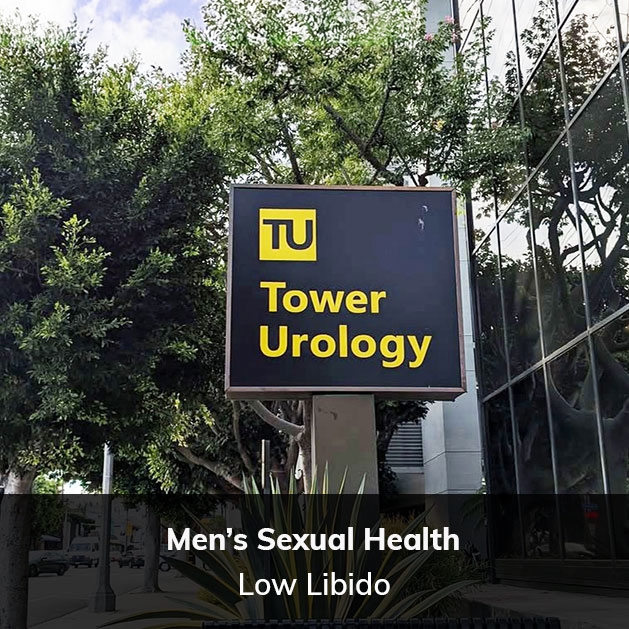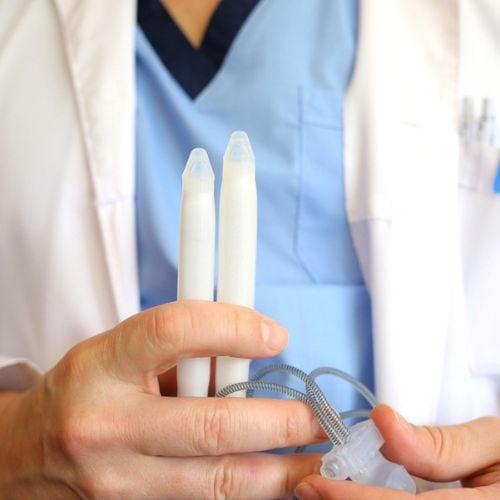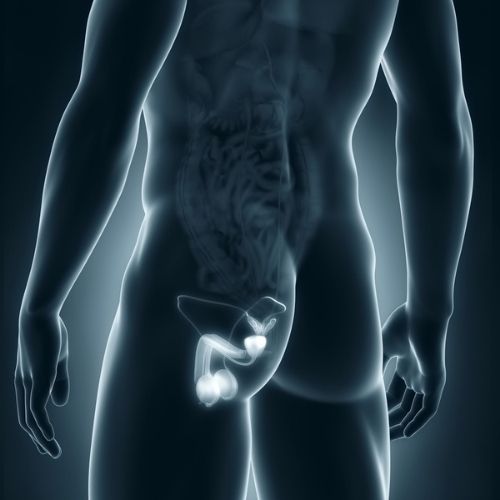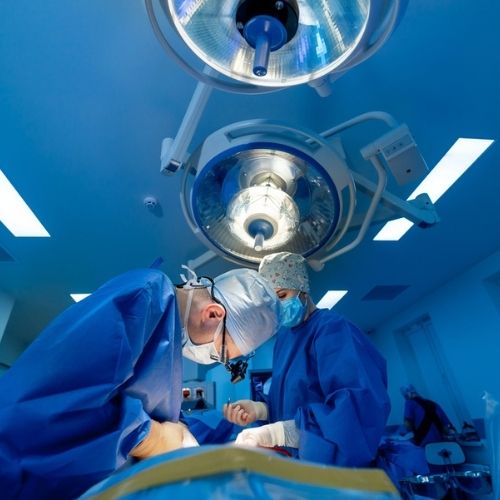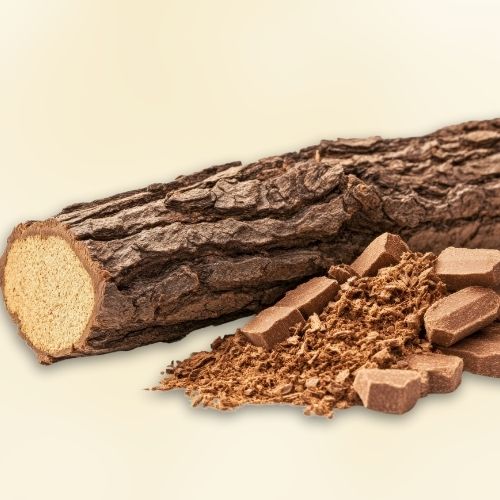What is male low libido?
A healthy sex drive is a fundamental aspect of men’s health, influencing self-confidence, relationships, and overall well-being. When sexual desire declines, it can cause frustration, emotional distress, and relationship strain. Low libido, or a persistent decrease in sexual desire, is a common issue affecting men of all ages.
While some changes in libido over time are normal, a significant, prolonged loss of sexual interest may indicate an underlying hormonal imbalance, health condition, or psychological factor that needs to be addressed.
At Tower Urology, we specialize in identifying and treating the root causes of low sexual desire with state-of-the-art diagnostics and personalized treatments. Whether the issue stems from testosterone deficiency, medication side effects, stress, or chronic health conditions, our expert team offers comprehensive, science-backed solutions to restore sexual function and vitality.

What are the common causes of low libido in men?
There are many possible causes of decreased libido, often involving a mix of hormonal, physical, psychological, and lifestyle-related factors.
Hormones
Testosterone is the primary sex hormone responsible for regulating libido, energy levels, and sexual function. Testosterone deficiency (hypogonadism) is one of the most common reasons for low libido in men. A decline in testosterone levels — often due to aging, obesity, chronic illnesses, or hormonal imbalances — can significantly affect sex drive and overall health.
Health conditions
Certain health conditions can interfere with sexual function. Heart disease and high blood pressure can restrict blood flow, reducing sensitivity and arousal. Diabetes and metabolic disorders may contribute to nerve damage and hormonal fluctuations that impact libido and erectile function. Additionally, sleep apnea, a condition that disrupts deep sleep, has been strongly linked to low testosterone and reduced sexual energy.
Sexual problems like erectile dysfunction and premature ejaculation can also negatively affect sex drive. Addressing and treating such problems can often lead to improved libido.
Medications
Some medications can cause low libido in men by affecting hormones, blood flow, or brain chemistry. Medications that cause low libido in some patients include selective serotonin reuptake inhibitors (SSRIs) (such as fluoxetine) and blood pressure meds (like beta-blockers).
Opioids and some anti-androgen drugs, like those used for prostate cancer treatment, can also suppress testosterone levels, leading to reduced sexual desire.
Psychological factors
Psychological factors play a significant role in sexual health as well. Stress, anxiety, depression, and relationship difficulties can all contribute to a decreased interest in sex. Mental health conditions can lead to loss of libido, while unresolved relationship problems, performance anxiety, or past trauma may make intimacy feel overwhelming or undesirable.
Lifestyle choices
Lifestyle choices can also have a profound impact on libido. Poor diet, sedentary behavior, excessive alcohol use, and smoking can all negatively affect hormone levels, circulation, and overall health and sexual well-being.
Symptoms of low libido in men
A noticeable decline in sexual desire compared to one’s usual interest in sex is often the most telltale sign. However, other common signs of low libido in men can include:
- Persistent lack of interest in sex or intimacy over an extended period.
- Difficulty experiencing arousal or pleasure during sexual activity.
- Emotional distress or relationship strain caused by reduced sexual function.
- Fatigue, irritability, and decreased motivation in daily life.
- Decline in sexual fantasies or spontaneous arousal.
How is low libido diagnosed?
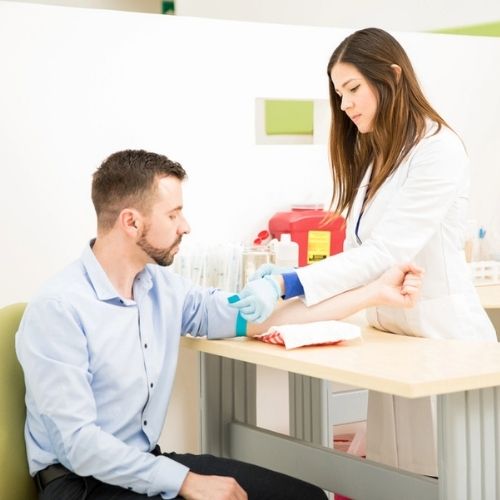
The possible causes of low libido are many and complex. A comprehensive evaluation should include a detailed medical history, lifestyle assessment, and thorough lab testing to identify the underlying cause of low libido.
A physical examination assesses testicular health, hormone-related symptoms, and overall wellness. Blood tests help measure testosterone, prolactin, thyroid hormones, and metabolic markers to detect hormonal imbalances or underlying medical conditions.
If psychological factors are suspected, we may also evaluate whether anxiety, depression, or relationship issues are contributing to the decline in sexual desire.
Treatment options for low libido
Fortunately, there are a variety of ways to address low libido in men, and treatment can often be tailored to each patient’s unique needs.
Testosterone replacement therapy (TRT) is a highly effective option for men with clinically low testosterone levels, helping restore libido, energy, and overall well-being. If hormonal imbalances are detected, targeted testosterone therapy may be used to optimize hormone levels and support an improvement in sexual function.
For some men, their loss of sex drive may be linked to health problems like chronic medical conditions (such as heart disease, diabetes, or sleep apnea). Managing these health problems through lifestyle modifications and medical interventions can significantly improve their sexual health.
In some cases, adjustments to medication may be necessary. Suppose SSRIs, beta-blockers, or opioid medications are causing sexual dysfunction. In that case, we work closely with healthcare providers to explore alternative treatments or dosage modifications that minimize side effects while addressing the underlying condition.
Psychological and relationship counseling can also be a powerful tool in restoring sexual desire. Cognitive-behavioral therapy (CBT) and/or sessions with a sex therapist can provide men with the tools to navigate stress, relationship issues, and self-esteem, addressing concerns like performance anxiety that may be contributing to low libido.
Advanced therapies for decreased libido
Beyond conventional treatments, Tower Urology offers cutting-edge solutions, including platelet-rich plasma (PRP) therapy. PRP injections use the body’s natural growth factors to improve blood flow, nerve sensitivity, and sexual function. This innovative regenerative therapy is a minimally invasive, drug-free approach to enhancing libido and sexual performance.
We also offer other options, such as neuromodulation techniques (a treatment that alters nerve activity by delivering targeted stimulation), which may help restore sexual vitality in certain patients.
Why choose Tower Urology for the treatment of low libido?
At Tower Urology, we take a multidisciplinary approach to treating low libido. Our team of board-certified urologists, hormone specialists, and sexual health experts works together to provide individualized treatment plans that address the root causes of sexual dysfunction.
If low libido impacts your happiness and well-being, we’re here to help. We offer guidance and support on how to fix low libido in men through various treatments, therapies, and lifestyle changes. Schedule a consultation today to explore effective, personalized solutions for your sexual health and vitality.
We invite you to establish a care plan with Tower Urology.
Tower Urology is conveniently located for patients throughout Southern California and the Los Angeles area, including Beverly Hills, Santa Monica, West Los Angeles, West Hollywood, Culver City, Hollywood, Venice, Marina del Rey, and Downtown Los Angeles.
Low Libido in Men FAQs
Low libido in men can be caused by a variety of factors, including stress, hormonal imbalances (like low testosterone), certain medications (like antidepressants), chronic health issues (including sexual problems), and relationship issues. Lifestyle choices like excessive alcohol consumption, smoking, and lack of exercise can also play a role.
Yes, vitamin D deficiency has been linked to low libido in men because it plays a role in testosterone production, which is crucial for sex drive. Low levels of vitamin D may contribute to fatigue, mood changes, and reduced energy, all of which can impact libido and a man’s sex life.
Yes, natural remedies for low sex drive in men include adopting a healthy lifestyle with regular exercise, stress management (like meditation or yoga), and a balanced diet rich in zinc and healthy fats. Improving sleep and reducing alcohol or drug use can also help boost sex drive naturally. While some supplements may promise to increase libido, it’s best to consult with a healthcare professional before starting anything new.
Yes, certain foods may contribute to lower libido in men by affecting testosterone and blood flow. Soy, processed foods, alcohol, dairy, and sugary drinks may reduce testosterone levels or impact circulation. Limiting these and focusing on a balanced diet can help maintain a healthy sex drive.
Sources
Let’s talk about sex: exploring factors influencing the discussion of sexual health among chronically Ill patients in general practice
https://pmc.ncbi.nlm.nih.gov/articles/PMC8934468
Management Strategies for Antidepressant-Related Sexual Dysfunction: A Clinical Approach
https://pmc.ncbi.nlm.nih.gov/articles/PMC6832699
Physiology, Testosterone
https://www.ncbi.nlm.nih.gov/books/NBK526128
Libido
https://www.sciencedirect.com/topics/medicine-and-dentistry/libido

